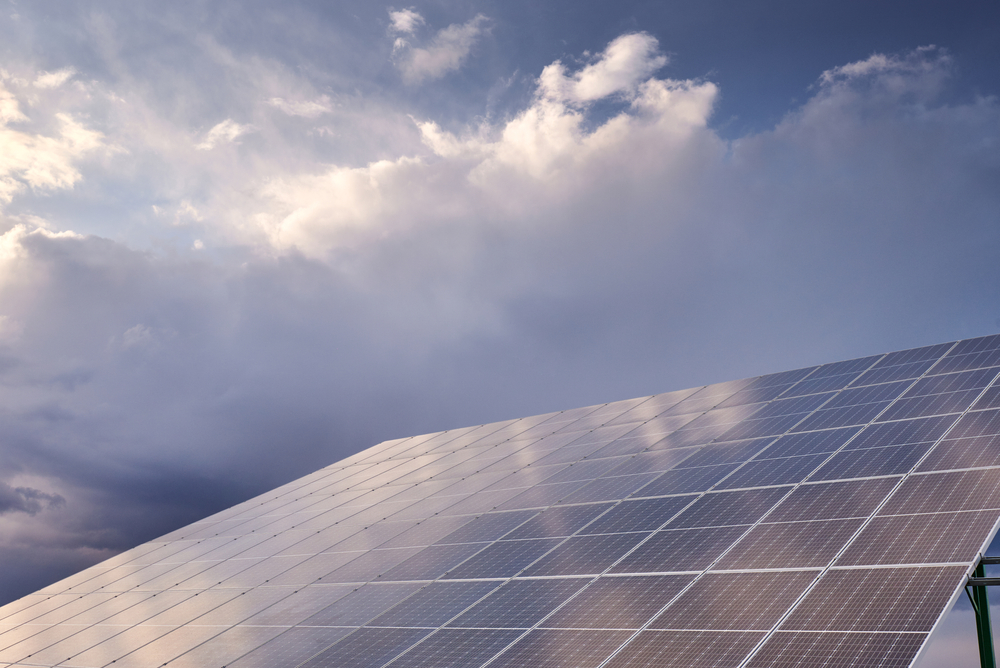
There are a number of common questions that clients tend to have when it comes to their solar panel installation, and some revolve around basic environmental conditions. Maybe the single most frequent in this arena: Do solar panels work on cloudy days?
At Intermountain Wind & Solar, we often answer these and many other questions from clients when discussing our solar panels and solar power services around Salt Lake City, Utah and Boise, Idaho. We offer extensive commercial and residential solar panel installation services for any need you may have, and will give you a detailed explanation of how your panels will work in all weather conditions. The answer to the question above: Yes, modern solar panels absolutely do still work on cloudy days, though their overall efficiency will depend on a few specific factors. Let's dive into everything you need to know here.
Firstly, before we get into specifics about how cloudy days impact solar panel efficiency, it's important to realize that the amount of sunlight a panel receives is what ultimately determines its output. This means that even on extremely cold days where there may not be much heat from the sun, panels can still produce energy as long as they are receiving enough light.
In fact, cooler temperatures can actually improve solar panel performance due to their design and material composition. So even if it's a cloudy day, as long as there is enough light reaching the panels, they will still be able to produce energy.
Of course, the more cloud cover there is, the less direct sunlight will reach your solar panels. This means that their efficiency may decrease slightly compared to clear sunny days. However, even on heavily overcast days, modern solar panels have been designed to still produce electricity at a significant level.
One important thing to note is that different types of clouds will impact panel efficiency differently. Thin, wispy cirrus clouds may not have much effect on solar panel output; on the flip side, thick, low-hanging stratocumulus clouds can significantly reduce efficiency.
Another important factor to consider when it comes to solar panel efficiency on cloudy days is the positioning and tilt of your panels. If you live in an area with frequent cloud cover or overcast weather patterns, our experts at Intermountain Wind & Solar may recommend adjusting the angle of your panels slightly to maximize their exposure to light.
Additionally, having a proper solar panel installation that takes into account shading from nearby trees or buildings can also help ensure optimal energy production on cloudy days.
Because wind often accompanies cloudy days, some clients may wonder if this has any impact on solar panel efficiency. The answer is no - wind does not have a significant effect on panel performance, as long as the panels are properly installed and secured to withstand normal wind speeds.
In fact, similar to cold temperatures (which wind often helps cause, of course), wind can actually improve panel efficiency by keeping them cool and preventing overheating. Wind also helps wick away excess humidity, which can sometimes impact panel output.
Now, to be clear, wind will not be able to increase your panels' ability to receive light on especially overcast days. But on days where some level of sun is still reaching your panels, wind can actually be a helpful factor.
One final concern some clients have is related to shading from inverters on cloudy days. Inverters are necessary components for converting the direct current (DC) energy produced by solar panels into usable alternating current (AC) electricity. However, if they are shaded due to cloud cover, their efficiency may decrease and impact overall panel performance.
This is why it's important to work with experienced professionals like Intermountain Wind & Solar when installing solar panels - we know how to properly position and install inverters to minimize shading on cloudy days and maximize energy production.
While cloud cover can affect solar panel efficiency to some degree, modern panels are designed to still produce electricity even on heavily overcast days. Proper panel positioning and installation, as well as considering factors like wind and inverter shading, can help ensure optimal performance for your solar power system regardless of weather conditions.
Don't let cloudy days discourage you from investing in the clean, renewable energy of solar power - contact Intermountain Wind & Solar today to learn more about our services and how we can help you make the switch to solar, whether you're in SLC, Utah or Boise, Idaho.





"All of the photos on this website are of real projects that Intermountain Wind & Solar has designed and installed.
We are proud to show off and stand behind our work."